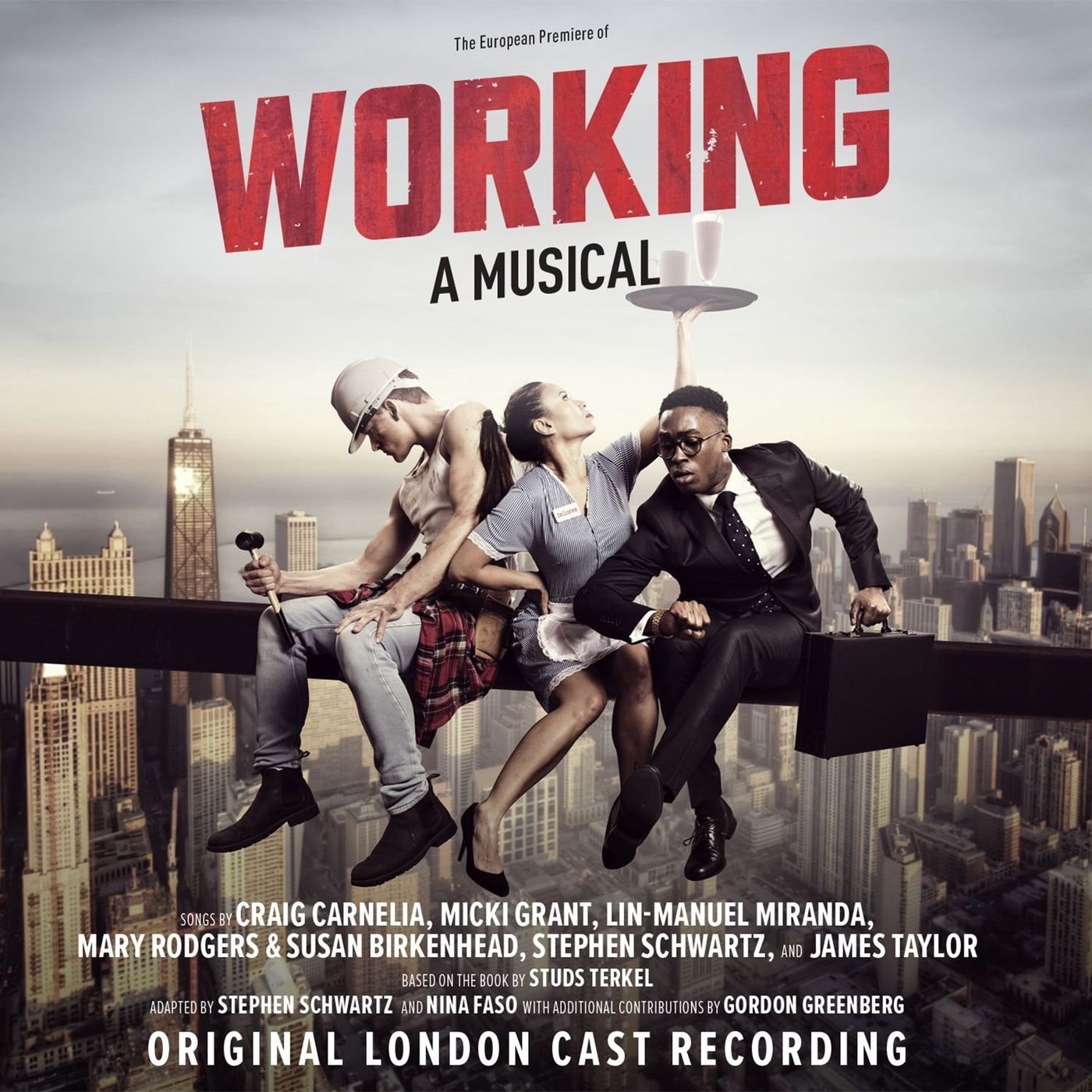BWW Album Review: WORKING Hard For Its Money

Some of the best-known musicals in the canon have undergone significant revisions and have existed publicly in several versions, even after their openings. Each iteration of Grease has tweaked the song list and, necessarily, the surrounding dialogue as well. Cabaret has been revisited multiple times, each time leaning more and more into the darker undertones of the story. And, perhaps most (in)famously, Chess has had more iterations on its plot and, specifically, its ending than ABBA had sparkly outfits.
Joining the ranks of the thoroughly-revised musicals is Working, whose latest cast recording debuted from its recent London cast. The musical, with a score by Stephen Schwartz and book and lyrics by Schwartz and assorted collaborators, originally debuted on Broadway in 1978, where it flopped rather spectacularly. It's a Chorus Line-esque collection of stories based on interviews with workers from across America, from housewives to teachers to craftsmen and more.
What made A Chorus Line pop, and where Working can't always find its footing, was its uncanny ability to paint characters as nuanced beings even with only one focused song apiece. Working attempts to do the same, but by focusing on the mundane details of their lives to an extreme degree, it often only succeeds in making us feel like we know a laundry list of duties and ideas, not a portrait of a character. At least, this is the effect when we only have the album to go on, with none of the context presumably provided by the book and physical production. One imagines that the lyricists were attempting to write in the conversational, mundane-made-exciting style that elevated Tim Minchin's lyrics for Matilda and Groundhog Day. In this case, however, the words are so focused on those ordinary things that they almost limit the songs rather than open them up.
The first half of the album is where this is most evident. The first several songs repeat a pattern: introduce a character who sings in "plain" language about their jobs and their lives, then add in the ensemble for the last verse. The actors give it their all, but it's difficult to connect when, as soon as we begin to think we might know something about a character, they disappear and we get yet another "intro to a character" song. Most of the songs have a similar sound and structure, aside from "Delivery," which oddly interpolates a vaguely salsa rhythm.
Fortunately, the second half of the album improves considerably. "A Very Good Day," set in a nursing home, finally achieves what so much of the album has been seeking: to help us understand how and when the simple, ordinary moments that we take for granted can become something much more than that. "Fathers and Sons" and "If I Could've Been" reach into the depths of wondering about possibilities - the possibilities we seek for ourselves, and those we long to pass on to our children. "I could've been something," sings the cast of characters, and with that, they break free of overwrought specifics and connect with each other and with their audience in that incredibly universal question: did I do enough? The finale, "Something To Point To," confirms this theme (albeit in an awkwardly-worded way), as the characters wonder what they'll leave behind. This theme of how ordinary people live and strive to leave a legacy is the most powerful part of the story and the album and leaves us on a high note.
Reader Reviews
Videos

